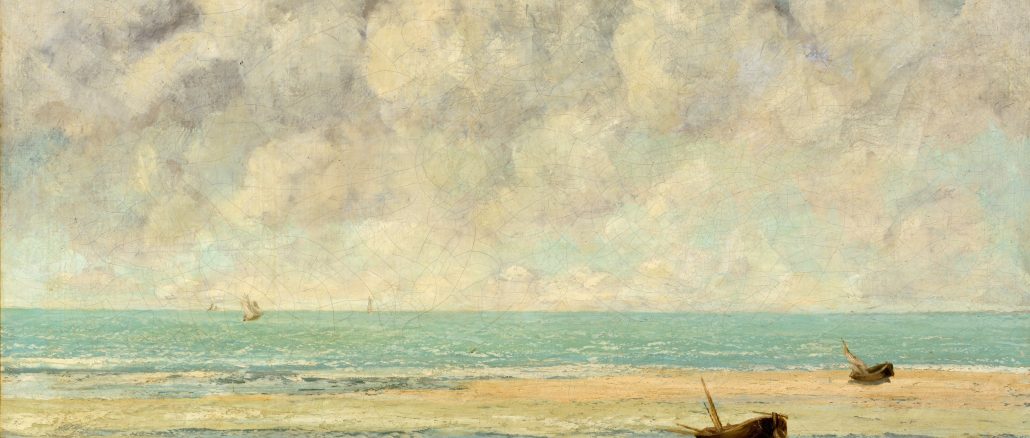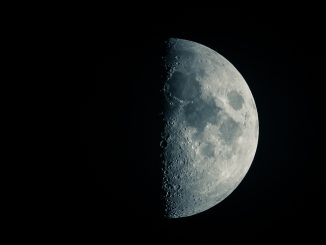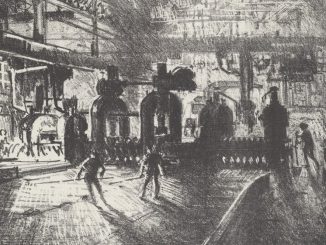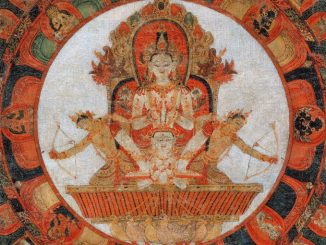
Think about the hardest loss you’ve been through, perhaps a beloved parent, or even harder, a precious child. What if every horrible thing imaginable happened? What if you lost everything and nearly everyone? How would you cope with that? And further, how would people remember your life? In “Just One More Thing,” Debra Groves Harman explores her father’s choices.
The doctor looked at me with worried eyes under his bushy gray eyebrows when I entered with Dad. It was like he was trying to warn me. Dad had mentioned that his doctor wanted to meet me, a conversation I imagined:
Got any kids?
Yes, two wonderful daughters.
Great. Do they live close?
One does, she and her husband are about four miles away. I see her every week. She’s a high school teacher, with a master’s degree!
Really? The doctor probably said, Bring her in with you next time. I’d love to meet her.
I kept a poker face and agreed to go. After the doctor said that Dad was in stage 4 kidney failure, we drove to the Oregon coast, mostly in silence. The sound of waves, the salt air, and the whistle of seagulls is a balm to Oregonians, probably to everyone. The Pacific Ocean is cold, with tan sand, towering rocks, and blue-green water. We have all the tourist shops, too.
The glass-blowing forge was open, and we went in. Dad pulled me to the counter and pointed to some hand-blown glass paperweights in a row, blue and clear glass with spirals of sand coming from the center. Memorial Glass Weights, said the sign.
“You could have me made into one of these,” he said.
“Which color?” I said. I wasn’t callous. I just knew that he was coming to terms with bad news, something he’d done all his life—the death of an only son, the nearly complete severing of his right arm, and a car accident that rendered him unable to walk very well.
“Oh, I don’t know,” He walked away from the glass counter. “Come on.”
He needed to talk. I needed to listen. That said, I was so numb to bad news that I became silent as a stone. I have a “flat affect” when it comes to bad news. Thinking through it all, it’s self-preservation.
My father was a large man with brown skin and dark eyes. Once, coming back from Mexico, the militant U.S. border patrol stopped his truck and grilled him about his citizenship. They thought he was Mexican, crossing illegally. He messed with border patrol, speaking Spanish, a garbled assortment of words that included cerveza and margarita and besa mi culo, which is “kiss my ass.” Dad loved Mexicans, and he disliked border patrol. He prefaced his words with a shit-eating grin, and people laughed when he said outrageous things, even border patrol.
Denice had epilepsy from a car accident with Dad in 1982. Her traumatic brain injury symptoms worsened when she was about sixty. Her short-term memory didn’t exist. They went to Europe, and the following week, she didn’t remember any of it.
As she aged, she had perhaps three seizures a week, and she often had bruises, black eyes, or bumps on her noggin, as she put it. A lot of the time, she’d sit down if she had the aura—a smell of oranges and lemons. My husband Jay and I fretted constantly, and were often out checking on her and Dad. Coming out of a seizure, she couldn’t speak, but would hum a tune, looking at us with blue eyes until she could use language.
In 2005, when she and Dad rolled out of the driveway in the giant recreational vehicle to head to Nevada, my husband and I shook our heads with concern.
“We may never see them alive again,” I remarked. My husband and I had waved them goodbye before, but this time felt different.
Sure enough, three weeks later, we got a call from Dad. Parked in the Riverside Resort Hotel parking lot in Laughlin, Nevada, Denice was laughing and joking with Dad and another couple, while she cooked dinner in the RV. She left the door open so she could listen to the conversation and get a word in here and there. Suddenly, she went quiet. A few seconds later, she rocketed out of the trailer door and landed on the concrete pavement.
She lay on the ground, blood pooling under her gray hair. She looked up at Dad and said, “My head really hurts,” and then shut her eyes. During the flurry of 911 calls and people trying to help, Dad struggled to breathe.
The helicopter landed in the Riverside Resort Hotel in Laughlin, Nevada. It flew her to Las Vegas, a trauma hospital. Dad leaned against the RV, gasping and wheezing. The horrified neighbors noticed and called 911 for him as Denice’s helicopter flew off. The ambulance whisked him to the small hospital on the opposite side of the Colorado River, in Bullhead City, Arizona. The recreational vehicle community, several elderly couples, tidied up the trailer and locked things up.
It was a Sunday, an icy day in January. I remember the sky was blue that day, and Jay had bought me yellow roses at a roadside stand. The phone rang.
“She isn’t expected to live, but I probably will,” said Dad. “Say a prayer for us.” He told me this from his hospital bed. Adrenalin kicked in and I talked to his nurse. She said, “Godspeed, dear,” that ominous tone that tells you to move on it.
All night, I prepared for a substitute teacher, creating lesson plans for four classes for a week. Damn, I hated being gone from work. Teachers suffer tremendously to be absent, cranking out the plans and stressing about the kids who don’t function well with subs. I had to go, though.
At 5 a.m., Jay drove me to the airport. We traveled 99E, the same road my brother died on, the same road my parents had their own near-fatal accident on. As if things weren’t horrible enough already, we hit black ice and the car spun in circles. The car thudded against the guardrail, and a train screamed by on the tracks just twenty feet away. I started screaming and jumped out of the car, slipping on the ice.
“Honey, get your ass in the car. We’re fine. Let’s go,” said my husband, a calm man.
By the time I got to the airport and on the plane, I settled into my window seat and leaned my head on the cool glass. I silently cried for an hour. Airplane staff brought me a glass of wine without even asking. I drank it down and they brought me another.
The plane landed in Las Vegas, and I picked up the rental car, driving fast to the Las Vegas hospital. Denice was in an emergency ward surrounded by unconscious Hispanic men. Family members sitting in folding chairs around one man told me this was the best hospital for gunshot victims.
“Gang violence is bad in this area,” one woman said, sitting by her son lying in the hospital bed. Someone had just shot through the house, and he’d been hit.
My elderly stepmom Denice looked like she was sleeping. Her eyes were closed, and she was wearing blue eyeshadow and smudged mascara. A tube drooped out of her mouth, and her chest rose and fell, but her body was still.
The surgeon said there was no brain activity. I felt her feet, and requested socks for her, rubbed her arms and hugged her, and combed her hair. They gave me lip balm for her. I called Jay from the waiting room, and then went back in to her. Holding her hand, I saw her rings weren’t there.
“Excuse me, nurse, she has two rings, a wedding ring and a gemstone ring. Do you have them, please?” The nurse went to check the safe, then asked other people. With people clicking around checking safes and records, I noticed a brown paper sack crumpled up behind her bed. Opening it, I saw her diamond wedding ring and her sapphire ring rattling around the bottom.
“I know it was pretty busy when she came in,” said the nurse, looking down. I could tell Denice was gone, and I needed to go check on Dad.
I drove the speed limit along the Las Vegas strip, with its fancy buildings and strolling people. I was a grimy mess with swollen eyes. I could smell the hospital on me. Driving through town was like being in a post-apocalyptic movie. The structures were there, but I felt dead, flatter than flat, grayer than gray. Once out of town, I floored it through the desert to Bullhead City, Arizona, just across the river from Laughlin, Nevada. Driving fast in the desert felt good. My spirits rose. I pulled over and bought an icy cold beer and drank it right down, rolling up my T-shirt sleeves in the heat. It took me another hour to reach Bullhead City.
Dad was quietly arguing with hospital staff when I arrived.
“I need to get out of here,” he said. “My wife needs me.” The nurse looked at me with sympathetic eyes and nodded to me. Baton passed. She quietly left and I held Dad’s hand in both of mine and reminded him of what he already knew. Denice was dying. He wanted every detail, was she comfortable? was she clean? was she warm? I told him that the nurse helped me to put socks on her, and she was in a comfortable place. That she was beautiful.
That night, I slept in one of those giant geriatric chairs next to Dad’s bed in the critical care unit. When Denice’s breathing machine was unplugged, she lasted about an hour, and then stopped breathing. Her son called to let us know. Dad was up all night, murmuring stories.
“She put her hands on my shoulders at night to keep me warm,” he said. “Her little hands.” I lay next to him, covering him with the blanket and giving him sips of cranberry juice. Keeping him comfortable and quiet in his room was one thing. Dealing with getting him out was quite another.
It took nearly a week of arguing to get him out of Intensive Care Unit and on a plane home to Oregon. The social worker said all the right words, but was hedging at moving things along so I could get him home. She apologized, “I’m sorry, but I’m quitting smoking, and you just can’t push me.”
I remember snapping at her, “I wish I could give a rat’s ass about your personal issue, but I need to get him home. I only have this week off, and he can’t travel alone. For fuck’s sake, his wife just died! Let me help you get things done.” I admit that I was mean, but she wasn’t going to budge otherwise. At that point, I’d had little sleep for several days. Dad had received the paddle treatment to shock his heart back into proper rhythm, something he’d had done before. It was familiar to us both. He was ready to go home, and so was I.
The hardest part was getting oxygen set up for the plane. You have to have oxygen tanks up to the plane, then switch to special oxygen tanks on the plane, then someone has to meet you at the destination airport with oxygen to put on off the plane. As the new nonsmoker alluded, it was a project, but not impossible.
Once at the airport, we had Bloody Mary’s, raising our glasses. We’d be living in the house of grief soon enough, but this day we were alive and glad as hell to be getting out of sunny Nevada.
Dad lived with us for a few months after Denice’s funeral. The season moved quickly, and when flowers began pushing up through the soil, Dad said he was ready to go home and start meeting some women.
“I don’t have much time left. I don’t want to live alone,” he said. On the right side, he had an artificial hip, a fused knee, and the reattached arm from an industrial accident. Despite all these problems, he was what my teenage students called at the time a chick magnet. I helped him get on match.com and he got about fifty winks a day, mostly women his age but some much younger.
“Look at this one,” he’d say, pulling up a forty-year-old in a red bikini.
“No, Dad,” I’d say, laughing. “She just wants your money.”
“And what do you think money’s for?” he’d say, raising his eyebrows. More than once, he bought plane tickets to far-away places, and I’d get a postcard from the Florida Keys with a scribbled note, “Pick me up at PDX airport on Thursday!”
He ignored bad news from doctors until the appointment with his nephrologist.
So here we were at the beach. We walked a bit, and then he stopped at a bench overlooking the sea.
“I’ll stay here. You go wade in the ocean. I’ll wait.” This is what he did when he was tired. He waited, like a good man does, a man who doesn’t walk in sand but doesn’t want to limit a companion.
“Don’t pick up any women,” I said.
“Killjoy!” he said.
Stage 4 kidney disease was just one more thing to him. He already had diabetes, chronic heart disease, and hepatitis C from a dirty blood transfusion in the ’80s.
“Could have been worse. Might have been HIV,” he said. “Hey, next week, they’ll tell me I have cancer. Just words, my girl. Roll with it!” He was oddly good-humored about his health issues. Time and again, I’ve considered the misery he went through, the times I sat in hospitals thinking he wouldn’t make it.
Caring for him and packing his pills was a major project, and I was usually exhausted from teaching all week. To my knowledge, I never screwed up. My husband tells me what a wonderful daughter I was. No. There were times I was impatient, “Dad, you can’t talk to me right now. I have to focus!” or, “Have you ever considered cleaning a cutting board after you use it?” It could be wearing, and he could be demanding.
One weekend I went out to the farm, and he’d bought two additional pill containers. “Wow, you’re optimistic,” I said. Dad laughed. He said, “Now you’re getting into the swing of things!” and later we had margaritas with a double shot of Jose Cuervo.
Dad died in 2012 in his bed with a patchwork quilt on it and lots of pillows, and morphine when it got hard. Jay and I were there, along with an aide we hired to help us. Dad fell in love with the aide, with her green eyes and long blond hair. When he proposed to her, she said she’d marry him if he were healthier, and they were both happy about that. I felt glad. The years without Denice had been hard.
Today, Jay and I drove to the coast and waded out into the ocean with a little vial of his ashes. We let him go and watched him break up in the mighty Pacific Ocean. Then, we said goodbye.
DEBRA GROVES HARMAN writes creative nonfiction and is the author of forthcoming memoir Dancing in Circles: An Expatriate in Cambodia. A first chapter excerpt won second place with the Oregon Writers Colony 2018 competition. Her creative nonfiction story “Smoke” won third place in that competition, as well. She has taught high school English for fifteen years, and before that lived in Cambodia, where she and a partner established a publishing company that was highly regarded for nearly two decades. Debra has a B.A. in English from University of Oregon, and an M.Ed. from Portland State University, as well as a Cambridge certification in teaching ESL.
Facebook: @debragrovesharman
Twitter: @harmanygroves
Featured image: Gustave Courbet, “The Calm Sea,” oil on canvas, 1869, H. O. Havemeyer Collection, bequest of Mrs. H. O Havemeyer, 1929, The Metropolitan Museum of Art.



